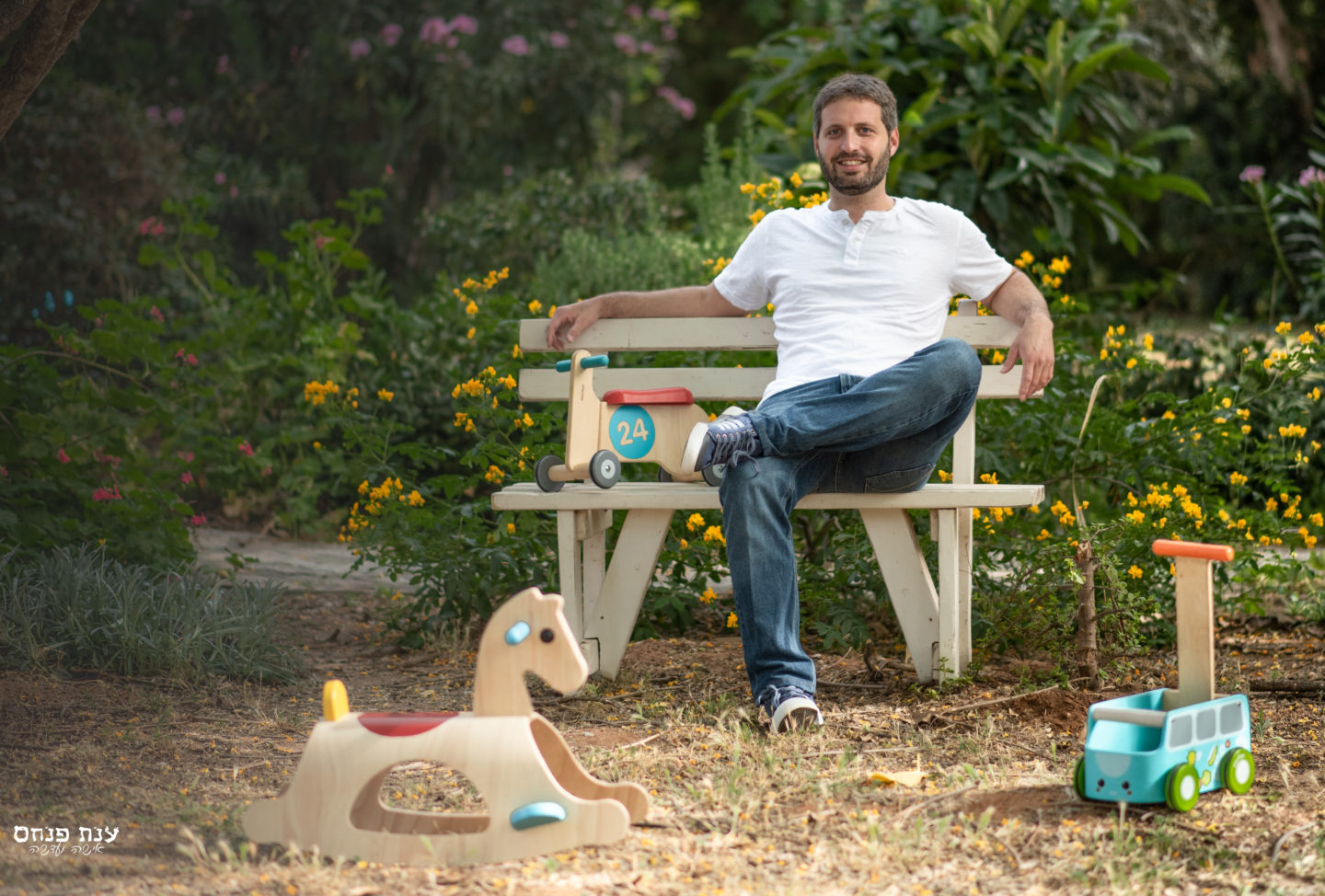Leshem immediately envisioned renting these toys to parents. “Kids grow up fast. What met their needs a moment ago is no longer relevant now. Therefore people wouldn’t invest in high-quality expensive toys and instead go for the cheaper ones, 90% of which are made of non-recyclable plastic. I had to do something to eliminate this market failure,” Leshem notes.
Challenging the market:
Leshem might not have thought of being an entrepreneur, but being an economist and earning a master’s in environmental studies secured a fair idea. “I instantly started doing research only to find that a US average family spends $500 per child per year. I also asked friends in [Israel] how many toys they have without use and it turns out a family can have around $1,500 worth of unused toys,” Leshem says.
Leshem slowly found a market and a base that would be willing to rent toys. He then started Toyswap, the first toy library in Israel, all while keeping his day job and venturing carefully into the entrepreneurial world. “I developed my prototype to start my online pilot, spending days in playgrounds speaking with young parents to convince them to join and enjoy my non-existent inventory,” Leshem adds.
Toyswap was met with much enthusiasm and a number of people subscribed to Leshem’s model. “I suddenly had 40 paying customers and did a lot of delivery by myself to talk directly to my clientele and see what is working and what isn’t,” he says.
Leshem’s pilot was first done all over Israel but it was not sustainable because the shipping costs were very high. “I wanted to do it in order to have a proof of concept and to learn the basics of this model. But the real goal is building physical toy libraries, with the first one having been opened in Kfar Saba, while another is about to open in Tel Aviv,” he adds.
Power of community:
Leshem wanted to use the power of community to spread his idea. He’s even going as far as starting toy libraries from one city to another. “At the moment, I’m doing [it] with the help of the municipalities, but I’m hoping in the future, I can do it on my own,” he notes.



